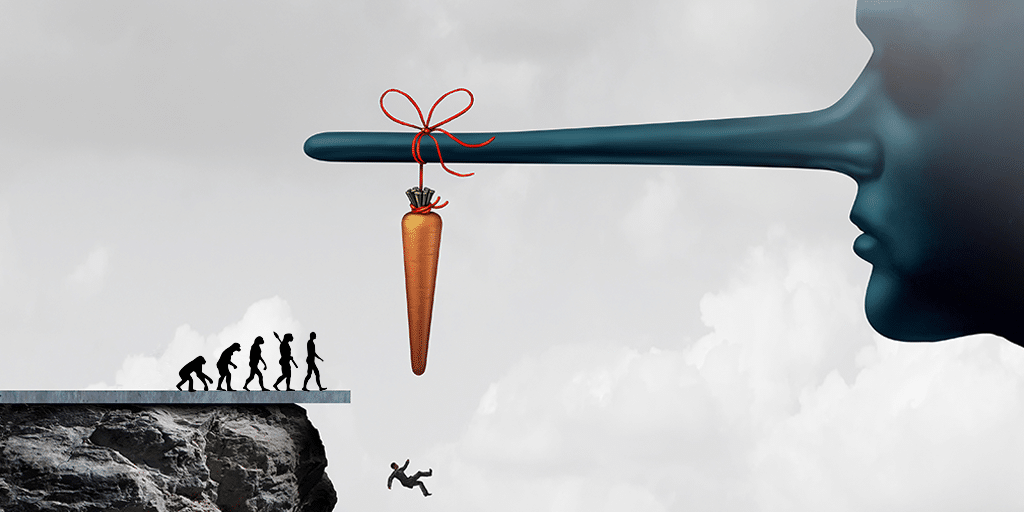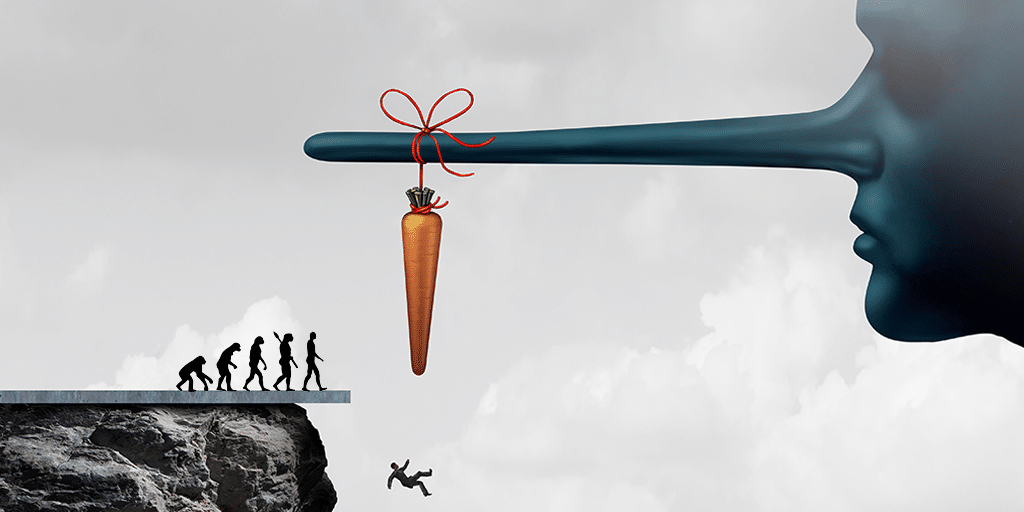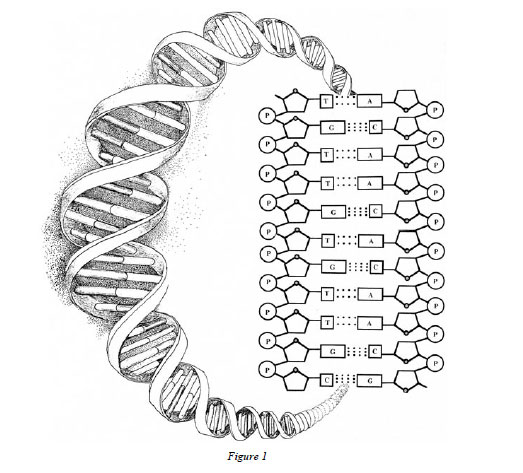What is the Probability of Evolution Occurring Solely by Natural Means?-Part 2
| By: Dr. John Ankerberg, Dr. John Weldon; ©2001 |
| Drs. Ankerberg and Weldon explain that in books like The Creation Hypothesis, “leading scientists have shown why the scientific evidence for creation is actually more compelling than the evidence for evolution”! |
What is the Probability of Evolution Occurring Solely by Natural Means?—Part Two
W. R. Bird is a summa cum laude graduate of Vanderbilt University and the Yale Law School who argued the major case on the origin issue before the U.S. Supreme Court. He is a member of the most prestigious legal organization, the American Law Institute, and has published articles on the origin’s topic in the Harvard Journal of Law and Public Policy and the Yale Law Journal. He is also listed in the most selective directory, Who’s Who in the World, plus listings in several others. In The Origin of Species Revisited (2 vol., NY: Philosophical
Library, 1993), he documents in exhausting detail how even evolutionary scientists are increasingly questioning the validity of standard evolutionary theory. In fact, this book was prepared utilizing the research amassed for the 1981 Supreme Court case over the issue of origins.[1] Attorneys for the defendant gathered thousands of pages of information from hundreds of evolutionary scientists who, collectively, had expressed reservations from most scientific fields, in most areas of evolutionary thinking.
And, in books like The Creation Hypothesis: Scientific Evidence for an Intelligent Designer, leading scientists have further shown why the scientific evidence for creation is actually more compelling than the evidence for evolution.[2]
For example, consider the following concluding statement in a critical review of the above text by Arthur N. Shapiro, with the Center for Population Biology at the University of California, Davis. Although a critic writing in Creation/Evolution, a journal with certainly no love lost for creationists or creationism, he nevertheless closes his review in the following words:
- I can see Science in the year 2000 running a major feature article on the spread of theistic science as a parallel scientific culture. I can see interviews with the leading figures in history and philosophy of science about how and why this happened. For the moment, the authors of The Creation Hypothesis are realistically defensive. They know their way of looking at the world will not be generally accepted and that they will be restricted for a while to their own journals. They also know that they will be under intense pressure to demonstrate respectability by weeding out crackpots, kooks and purveyors of young-earth snake oil. If they are successful, the day will come when the editorial board of Science will convene in emergency session to decide what to do about a paper which is of the highest quality and utterly unexceptionable, of great and broad interest, and which proceeds from the prior assumption of intelligent design. For a preview of that crisis, you should read this book. Of course, if you are smug enough to think “theistic science” is an oxymoron, you won’t.
He also noted,
- In reasonably objective fashion the chapters… demonstrate how regularly we have prematurely proclaimed victory on each and every front. A certain humility on our part seems called for. At the least, we should be candid in admitting that if we consider material solutions to these problems inevitable, that is a matter of faith on our part. We can point with great pride to tremendous advances in the past, but we of all people should know the limitations of inductive generalization.[3]
For a critical reviewer who is a respected scientist to write in a secular anti-creationist journal and yet take a book of this nature in serious fashion is certainly encouraging and indicates that, at least for open-minded scientists, the scientific case for creation cannot just be summarily dismissed out of hand.
However, the initial difficulties of evolutionary theory so clearly laid out in many books, pale to insignificance when faced with the heroic difficulty of finally evolving a man. The noted scientists Francis Crick, L. M. Murkhin, and Carl Sagan have estimated that the difficulty of evolving a man by chance processes alone is 1 in 102,000,000,000—which Borel’s law says is no chance at all.[4] Indeed, a chance so small is not even conceivable. This is a figure with 2 billion zeroes after it and would require some ten thousand books, of one hundred and fifty pages just to write it out. Many eminent scientists have attempted to grapple with the huge difficulty of the chance origin of human life and the magnitude of the problem of explaining the complex information content in living things—with, in our view, little success.[5]
Few would argue that, despite its inherent complexities, the discussion of probability theory in reference to evolution is fascinating to contemplate for both layman and scientist.[6] Of course, scientists who are committed evolutionists believe that despite the tremendous odds against evolution, the large amount of time involved (supposedly billions of years, an assumption that itself is scientifically questionable) somehow makes the impossible possible.
Unfortunately, the argument that time alone solves the difficulty of probability considerations, is not only intellectually unconvincing, it is, in the end, preposterous. For example, Borel’s “Single Law of Chance” declares that when the odds are beyond 10200 (on a cosmic scale) an event will never occur, no matter how much time is involved. Indeed, how could Nature do “in time” (i.e., create life) what it clearly had not done “with time” for all eternity? In other words, if matter is eternal, then how could it eternally exist without producing life and then at some point in time do what it had not done for all eternity?
In the end, time is merely the miracle or the “god of the gaps” that supposedly resolves the difficulty of life evolving solely by chance. Nevertheless, “Isn’t time not only the creator, but more efficiently the enemy of the freak event? Will time not surely destroy the order fortuitously created…? How then can time be actually cited as the very cause of the almost infinite complexity of life?”[7] (For a good discussion of the impossibilities here see James F. Coppedge, Evolution: Possible or Impossible [Zondervan, 1973] and R. C. Sproul, Not a Chance[Baker 1994].)
Regardless, the weight of factual information underlying such discussions of probability which mitigate against evolution may be why Dr. Francis Crick, Nobel Prize winner, biochemist, and co-discoverer of the structure of the DNA molecule, once wrote: “An honest man, armed with all the knowledge available to us now, could only state that in some sense, the origin of life appears at the moment to be almost a miracle, so many are the conditions which would have had to have been satisfied to get it going.”[8] Further, Sir Fred Hoyle, founder of the Cambridge Institute of Theoretical Astronomy and the originator of the Steady State theory of the origin of the universe, also seems to have problems with evolutionary theory. Citing Hoyle, Nature magazine commented,
- “The chance that higher life forms might have emerged in this way is comparable with the chance that ‘a tornado sweeping through a junk-yard might assemble a Boeing 747 from the material therein.’”[9]
Hoyle and his research partner Chandra Wickramasinghe press the point in their Evolution From Space. They argue that the chance of life evolving randomly is too improbable. Thus, they speculate life had to have arisen from other intelligent life somewhere in space. After outlining the reasons why it is unlikely life could have originated by chance, they supply probability calculations to support the idea that life must have been assembled by some other form of intelligence.
Any theory with a probability of being correct that is larger than one part in 1040,000 must be judged superior to random shuffling. The theory that life was assembled by an intelligence has, we believe, a probability vastly higher than one part in 1040,000 of being the correct explanation of the many curious facts discussed in preceding chapters. Indeed, such a theory is so obvious that one wonders why it is not widely accepted as being self-evident. The reasons are psychological rather than scientific.[10]
In their chapter, “The Evolutionary Records Leak Like a Sieve,” Hoyle and Wickramasinghe even credit the Natural Theology of Paley who cogently argued for creation by intelligent design: “The speculations of The Origin of Species turned out to be wrong, as we have seen in this chapter. It is ironic that the scientific facts throw Darwin out, but leave William Paley, a figure of fun to the scientific world for more than a century, still in the tournament with a chance of being the ultimate winner.”[11]
Notes
[Most of the material for this article was excerpted from John Ankerberg and John Weldon, “Rational Inquiry and the Force of Scientific Data: Are New Horizons Emerging?” Taken from The Creation Hypothesis edited by J. P. Moreland. ©1994 by J. P. Moreland. Used by permission of InterVarsity Press, P. O. Box 1400, Downers Grove, IL 60515, pp. 272-277, 291-292. Additional material from our The Facts on Creation vs. Evolution (Eugene, OR: Harvest House Publishers, 1993).]
- ↑ Aguillard, et. al., v. Edwards, et. al., civil action No. 81-4787, Section H, U.S. District Court for the Eastern District of Louisiana, Brief of the State in Opposition to ACLU Motion for Summary Judgment, c., 1984, W. R. Bird.
- ↑ See J. P. Moreland, ed., The Creation Hypothesis: Scientific Evidence for an Intelligent Designer (Downers Grove, IL: InterVarsity, 1994).
- ↑ Arthur N. Shapiro, Review in Creation/Evolution, Vol. 14, no. 2, pp. 36–37.
- ↑ Carl Sagan, F.H.C. Crick, and L. M. Mukhin in Carl Sagan, ed., Communication with Extraterrestrial Intelligence (CETI) (Cambridge, MA: MIT Press, 1973) pp. 45-46; cf., Emile Borel, Probabilities and Life (New York: Dover, 1962), chapters one and three.
- ↑ e.g., cf., Michael Denton, Evolution: A Theory in Crisis (Bethesda, MD: Adler & Adler, 1986), pp. 308- 344. Fred Hoyle and Chandra Wickramasinghe, “Where Microbes Boldly Went,” New Scientist, Vol. 13 (August 1991) pp. 412-15.
- ↑ cf., James Coppedge, Evolution: Possible or Impossible? Molecular Biology and the Laws of Chance in Nontechnical Language (Grand Rapids, MI: Zondervan, 1973).
- ↑ In Wysong, p. 141.
- ↑ Francis Crick, Life Itself: Its Origin and Nature (New York: Simon & Schuster, 1981), p. 88; Crick proceeds to state his belief that it was possible for evolution to occur, given the right conditions. Cf., Chuck Missler, “Beyond Coincidence,” Briefing Package (for information call 208-773-6310).
- ↑ Insert, “Hoyle on Evolution,” Nature, Vol. 294, 12 November 1981, p. 105.
- ↑ Fred Hoyle and Chandra Wickramasinghe, Evolution From Space (London: J. M. Dent & Sons, 1981), p. 130.
- ↑ Ibid., pp. 96-97.









[…] Read Part 2 […]